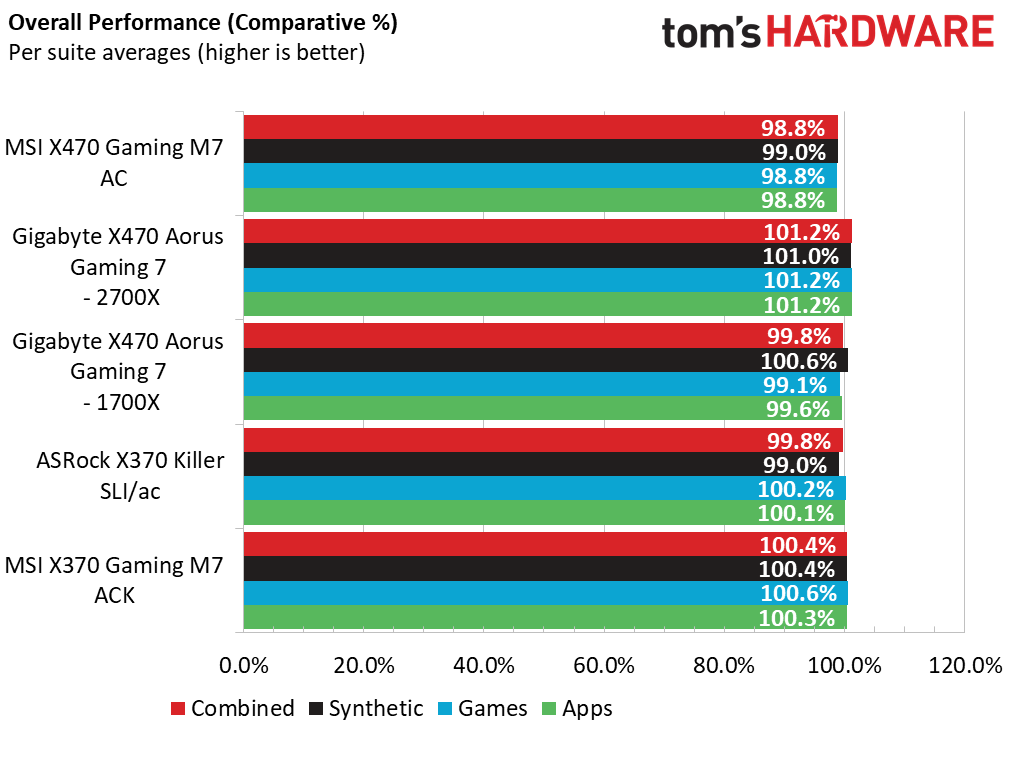MSI's AMD Gaming M7 Line: Refined Excellence
Why you can trust Tom's Hardware
Test Results: Synthetics, Games & Performance
Synthetics and Applications
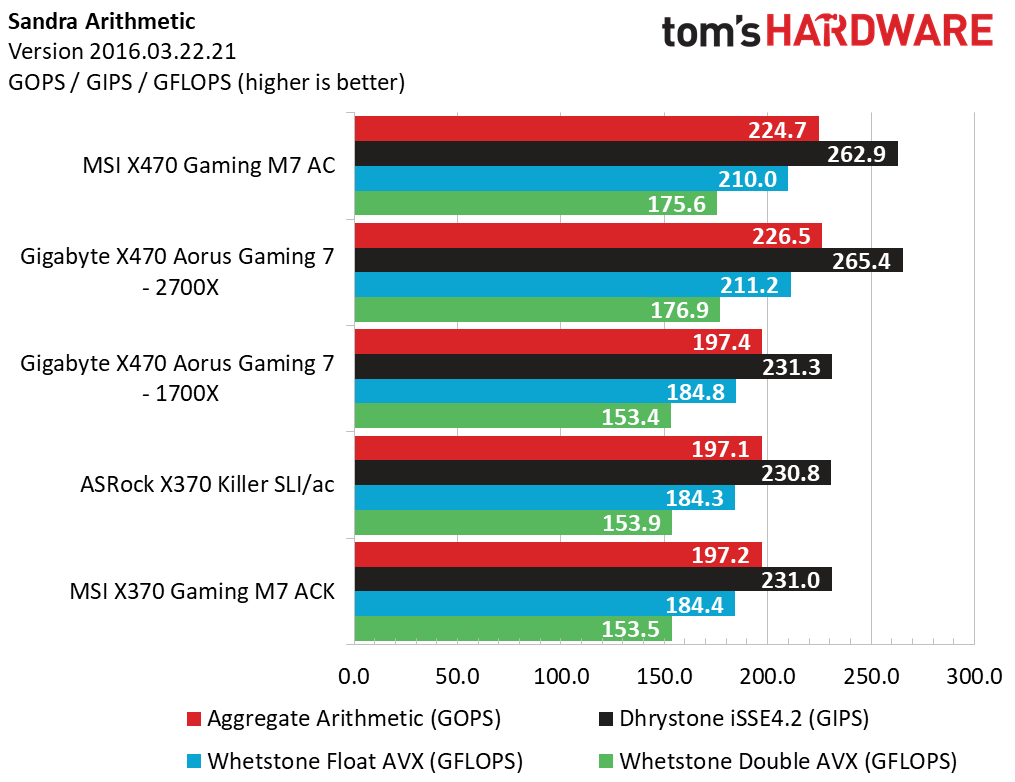
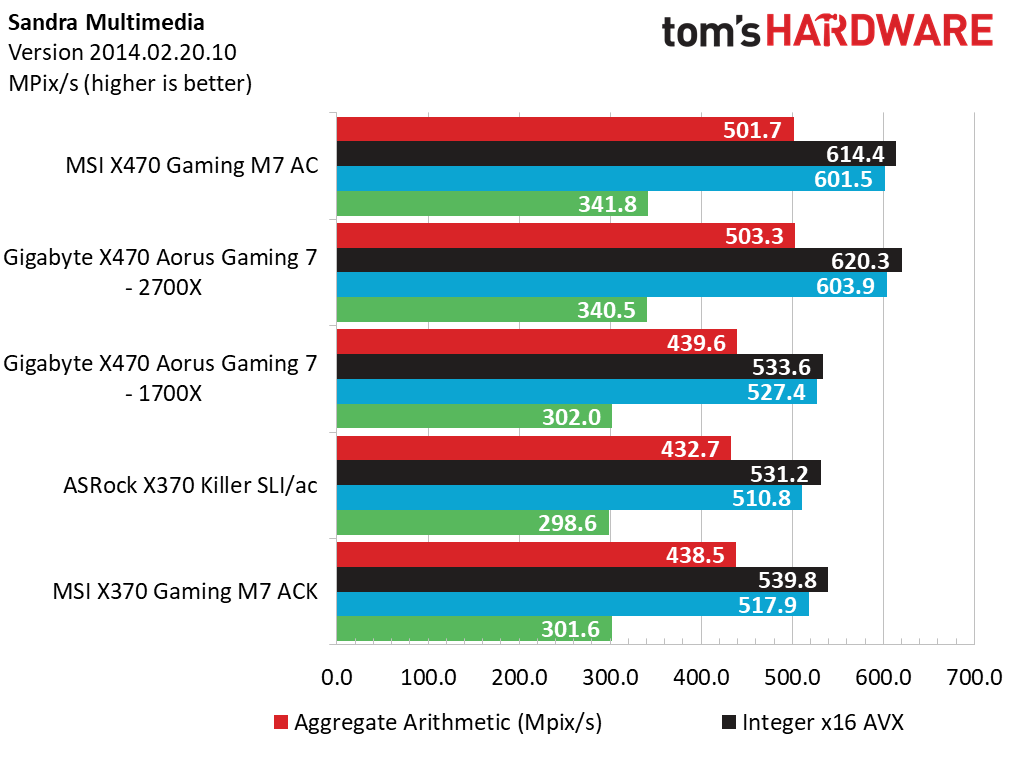
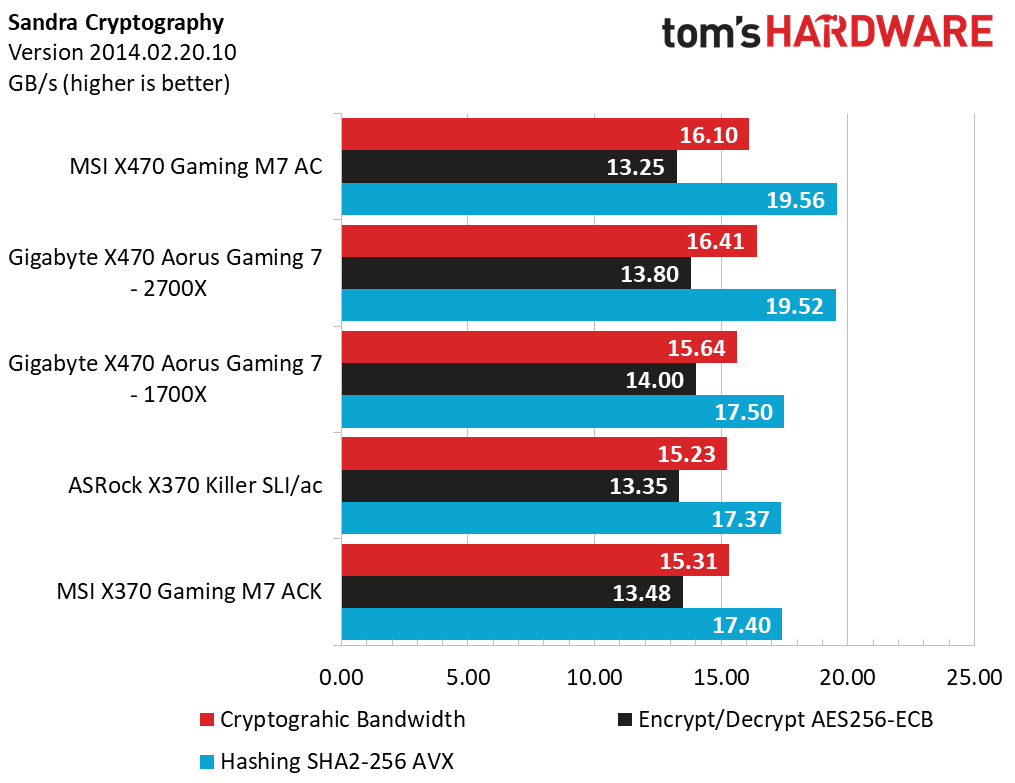
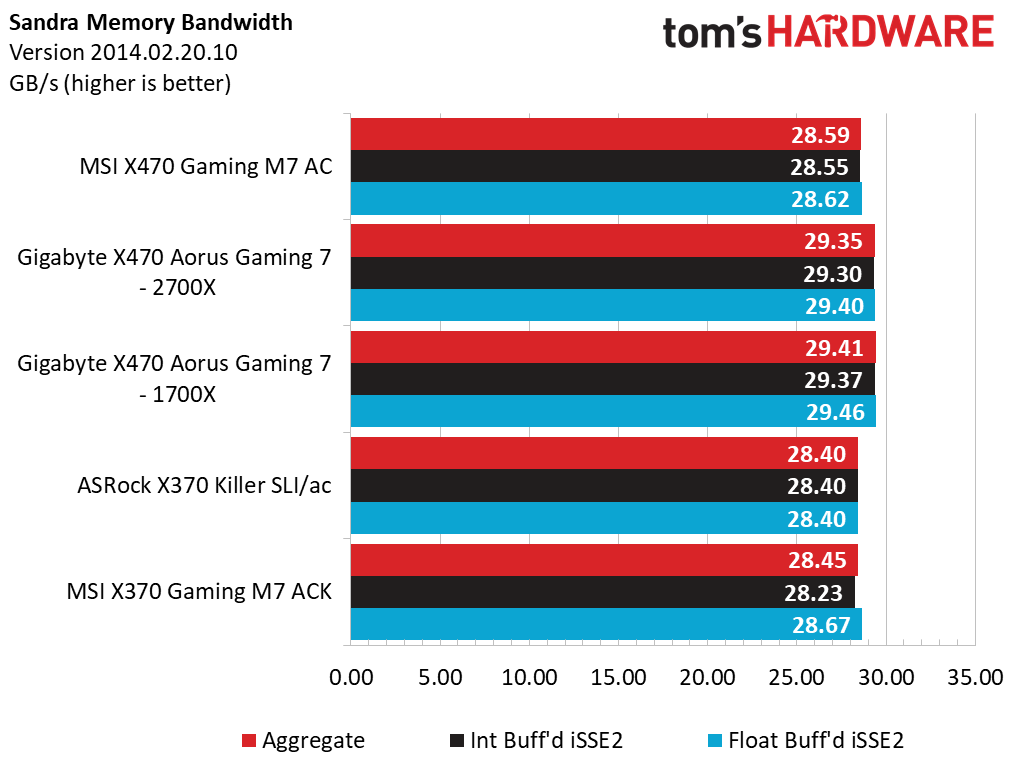
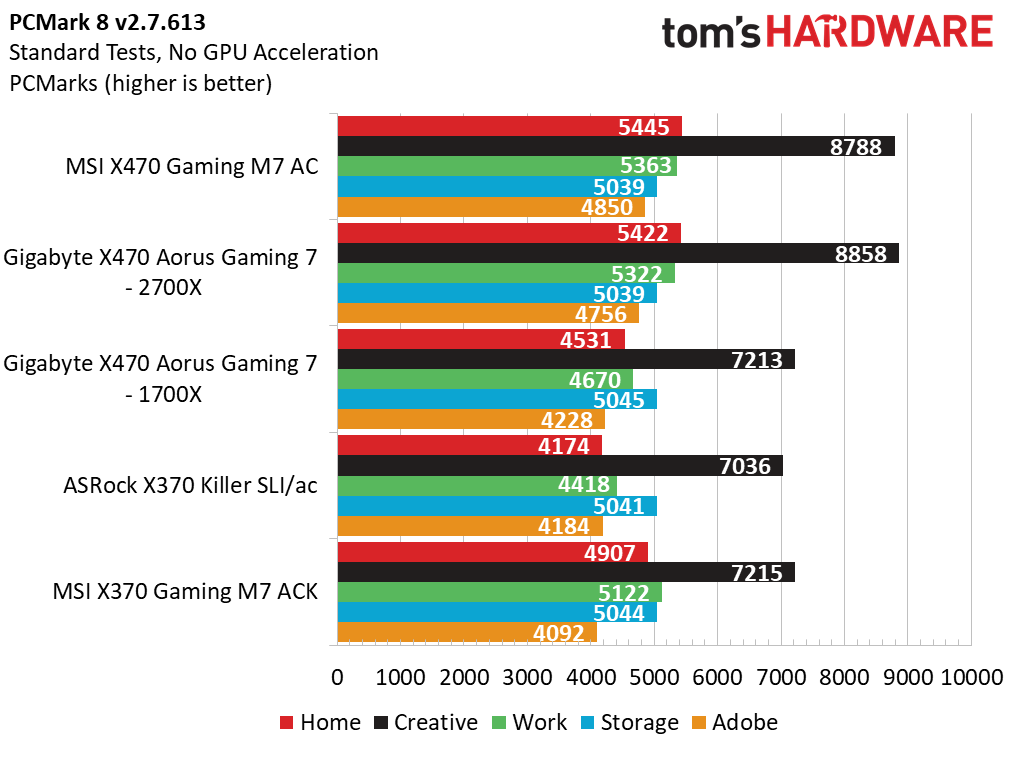
PCMark starts us off with textbook differences between our two different generations of test benches, with the graphical and IPC upgrades accounting for the major performance deltas. For X470, the MSI and Gigabyte trade blows with the MSI X470 Gaming M7 AC squeezing out a half-percentage point win on average. The MSI X370 Gaming M7 ACK make a larger name for itself with nearly a six-percentage-point win compared to the ASRock board. Sandra shows similar trends where the newer hardware performs better across the board but by a smaller margin thanks to the lack of GPU influence. The only notable difference across systems is that the Gigabyte X470 board manages to squeeze out an extra GB/s in the memory bandwidth tests on either processor technology thought users likely won’t realize that delta in standard operation.
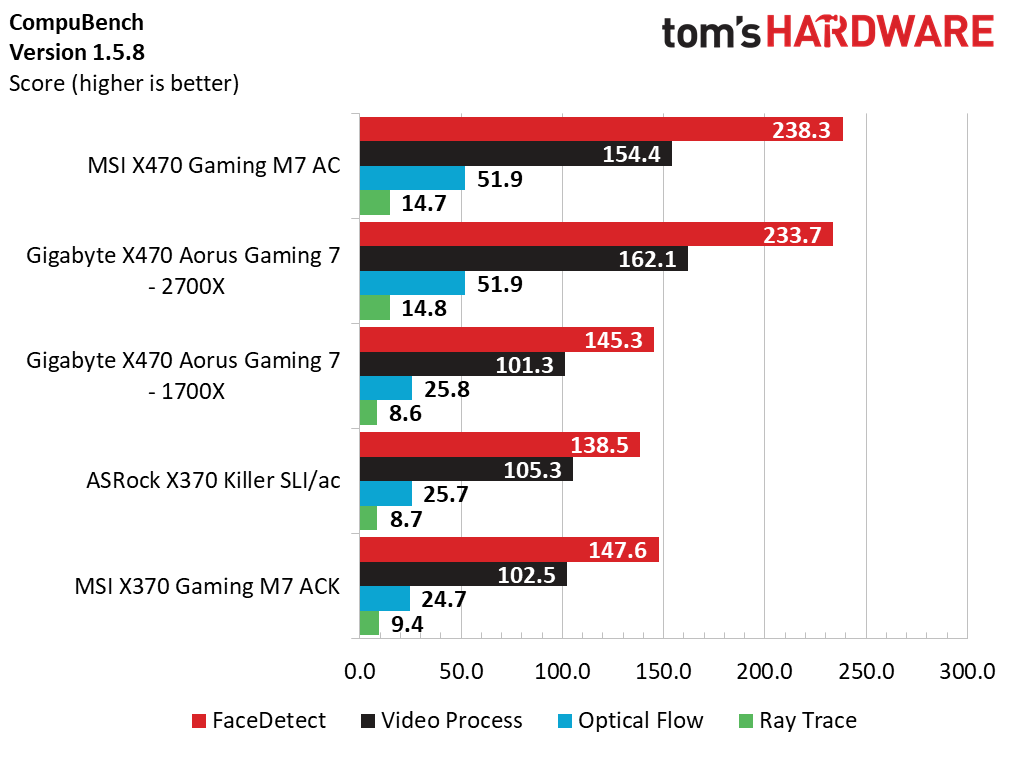
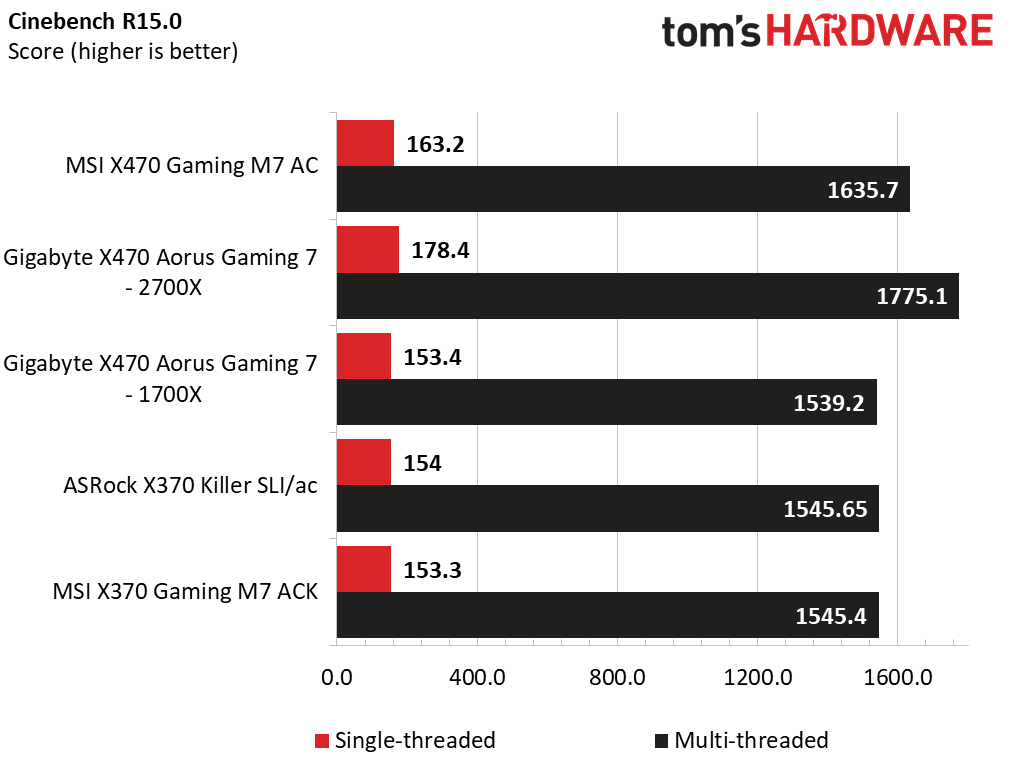
Cinebench decides to turn the tables a bit with an impressive win for the Gigabyte X470 2700X combination with almost 9 percent separating the two samples. The X370 data is less exciting and helps give us warm fuzzies that something weird isn’t going on in our test setups. Compubench also conjoins these feelings with only roughly 1 percent separating the X470 samples and the X370 samples when comparing average performances. Obviously, these more GPU-centric tests favor the GTX 1080’s horsepower.

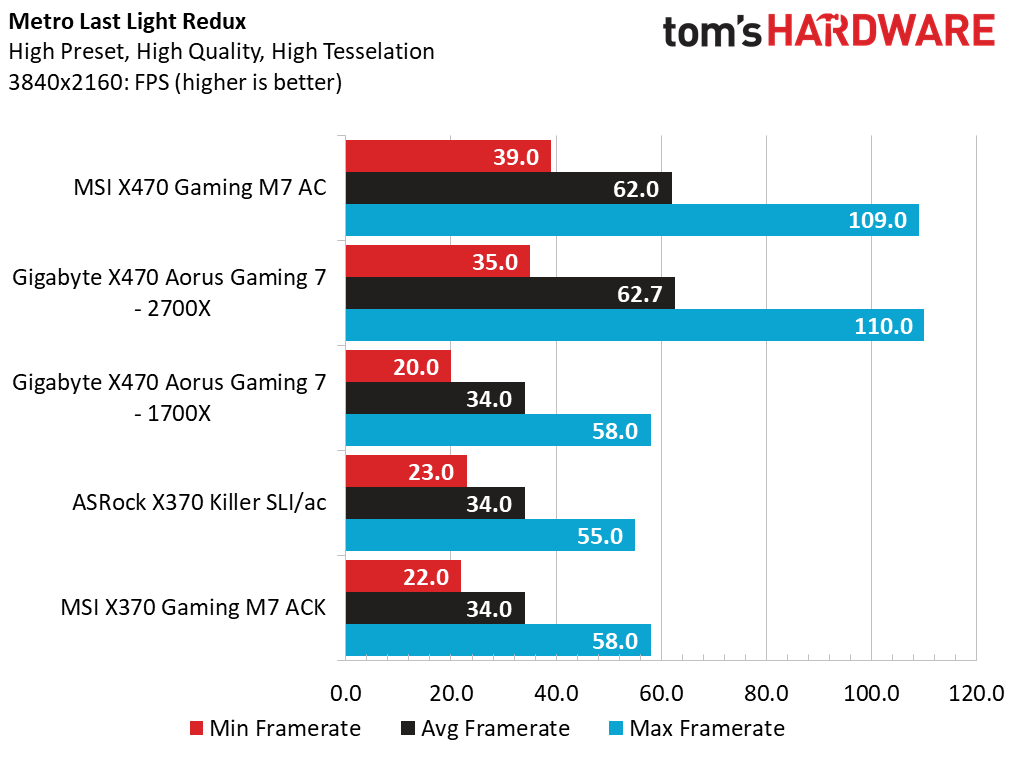
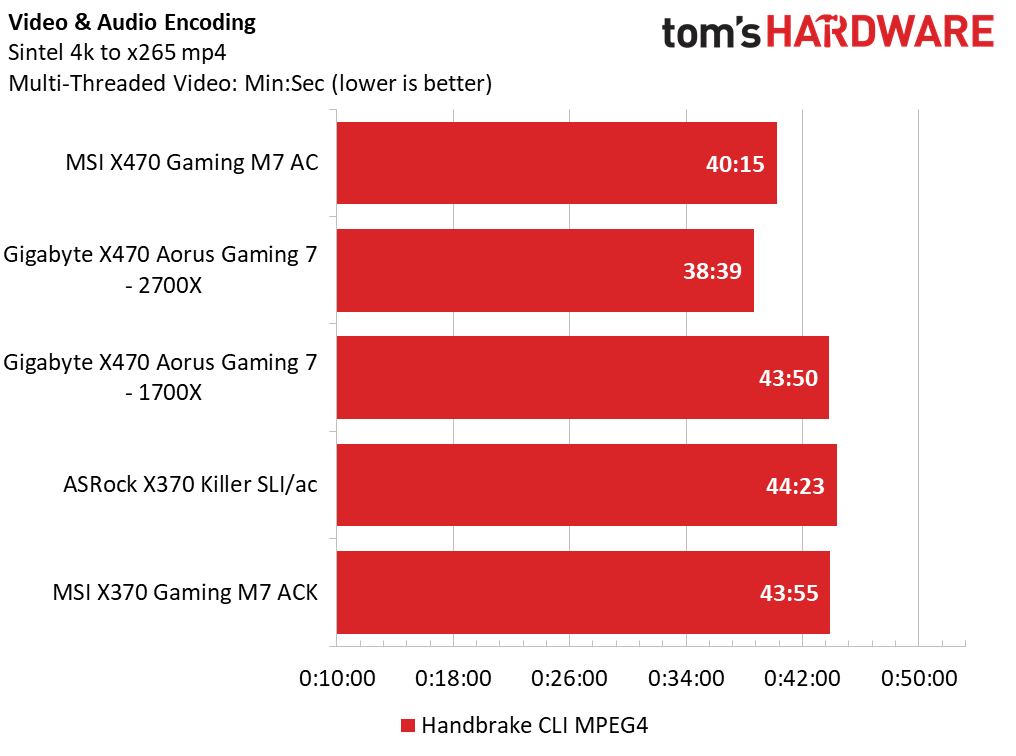
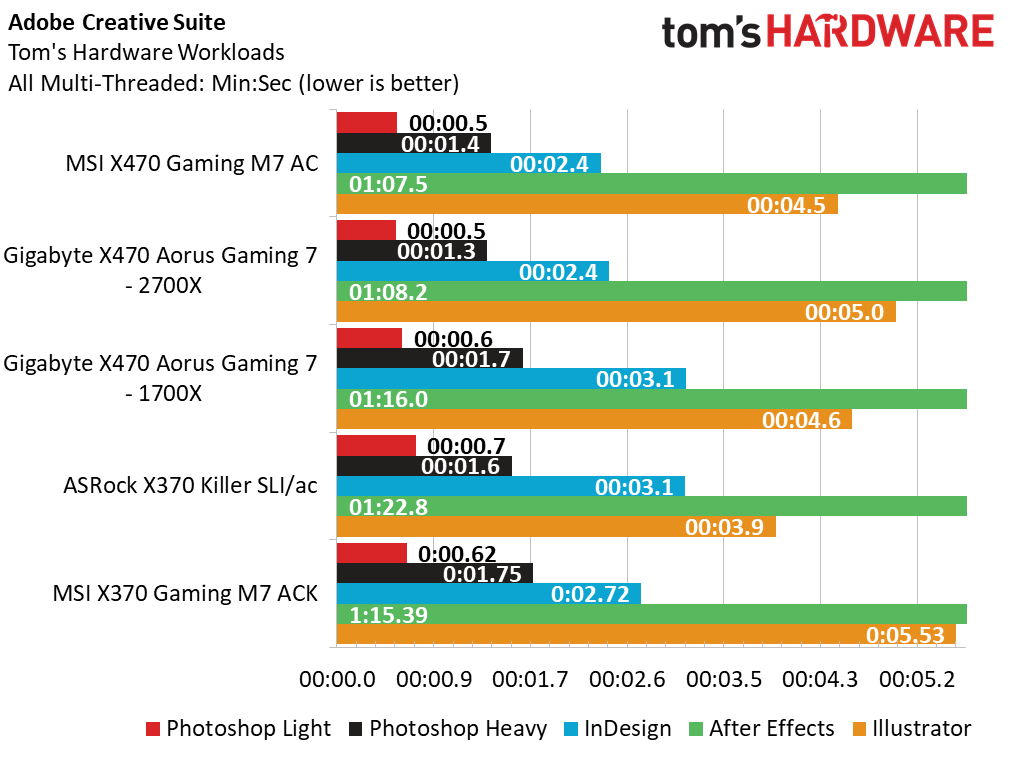
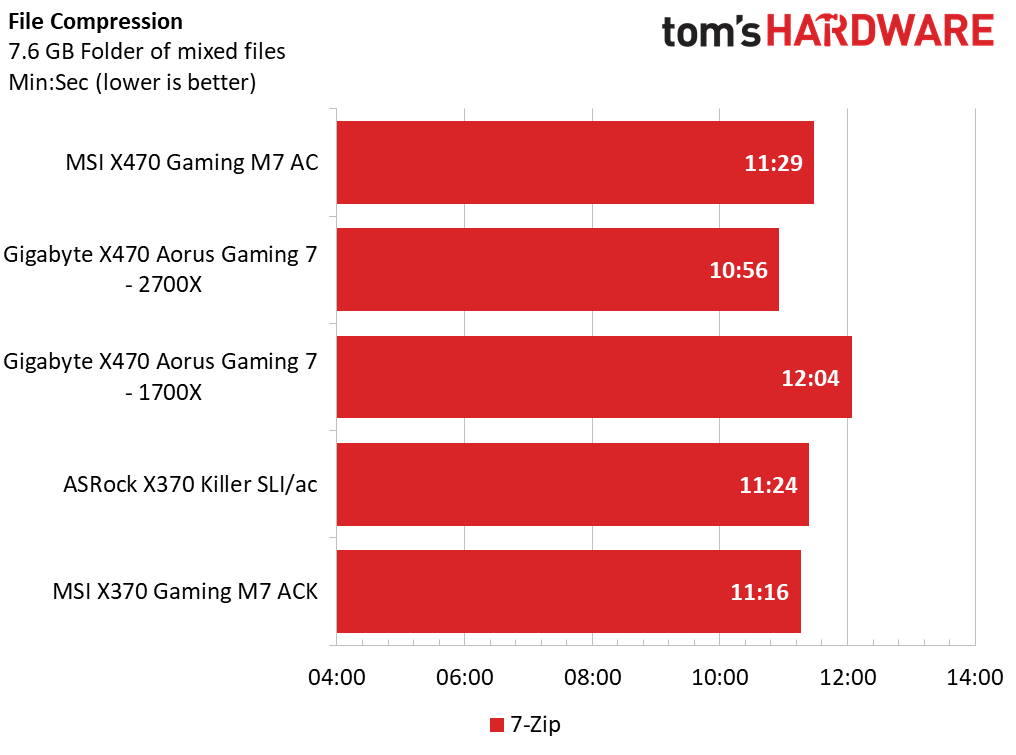
Application data does seem to scatter across the board, with the Gigabyte X470 and 2700X combination coming ahead in all but the Adobe benchmarks. With the gaps ranging from fractions of seconds to fractions of minutes, additional pain comes to the MSI X470 board with respects to average performance. The X370 data, again, is less than exciting other than the notable 1.7-second win for the ASRock Killer in the Illustrator test.
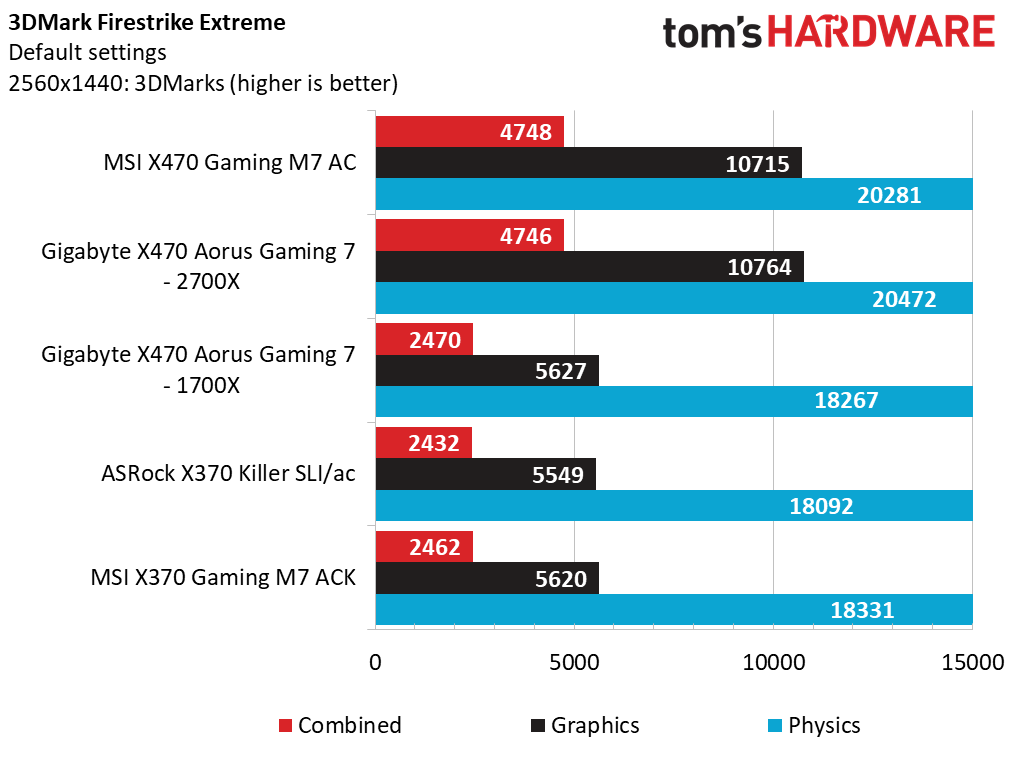
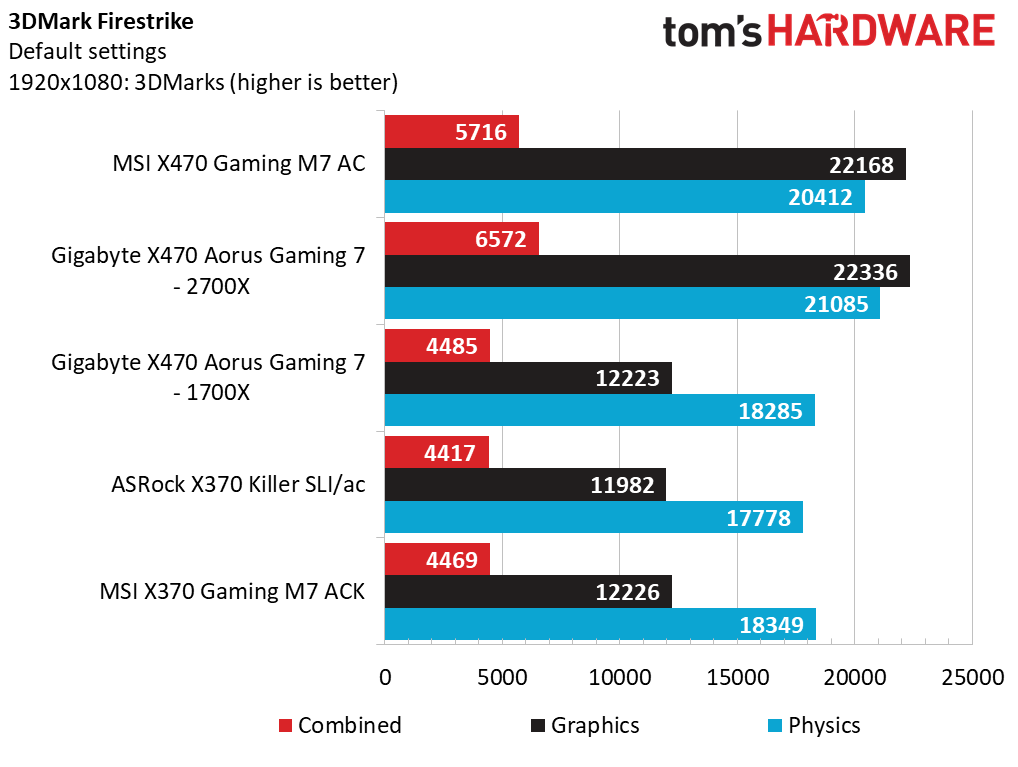
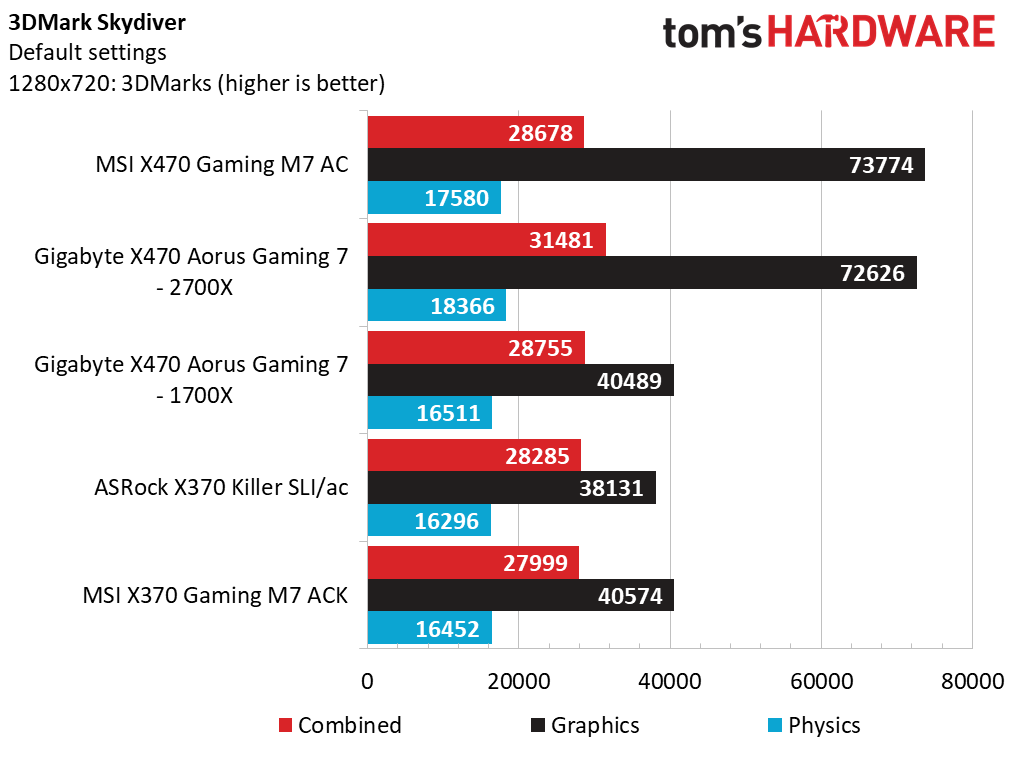
Jumping over to the Gaming Synthetics, obviously, the GTX 1080 becomes more of a contributor to scores than the motherboards in question. Skydiver shows a four-percentage-point loss for the MSI X470 AC and the X370 board manages to land a middle of the pack thanks in part to its combined score. Firestrike shows a similar trend for the X470 boards but with a six-percentage-point deficiency for the MSI Gaming M7 and X370 boards appear to tighten the gap just a bit. Firestrike Extreme finally gives the MSI X470 Gaming M7 AC a combined score win here but somehow scored lower in either of the associated targeted tests. Again, the GTX 970 system shows similar performance between the Gigabyte and MSI boards, while the ASRock X370 takes another beating.
Gaming and Performance
Our standard benchmark suite hits both test configurations with similar details and presets, so it should be obvious the GTX 1080 system will score higher than the GTX 970 system. With that out of the way, let us get benching.
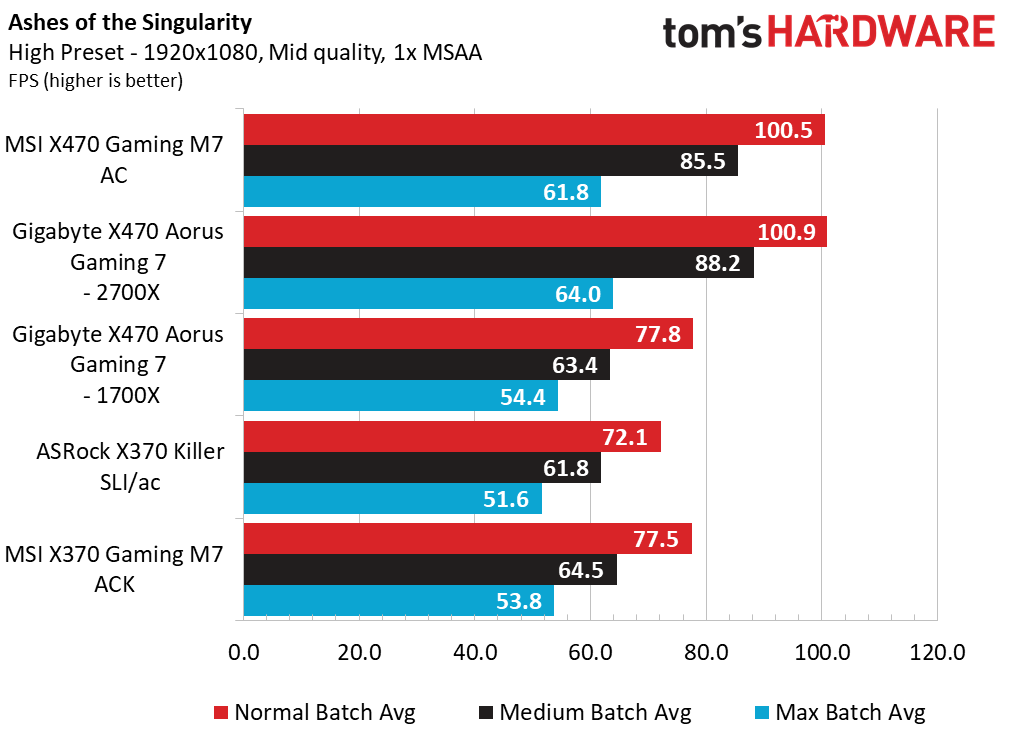
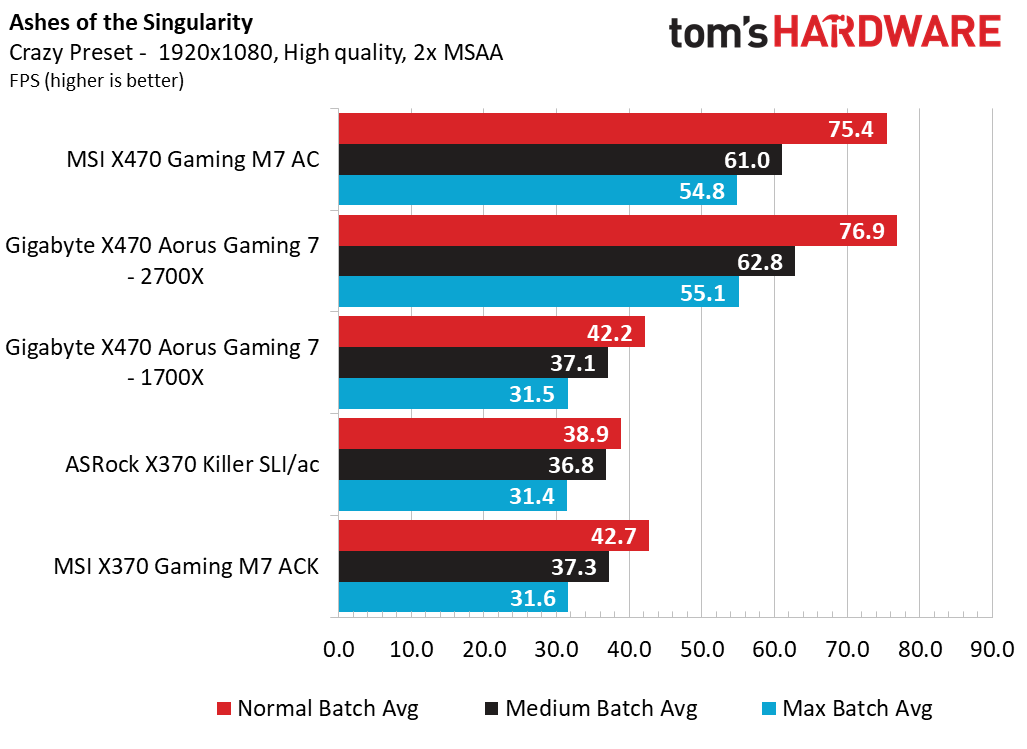
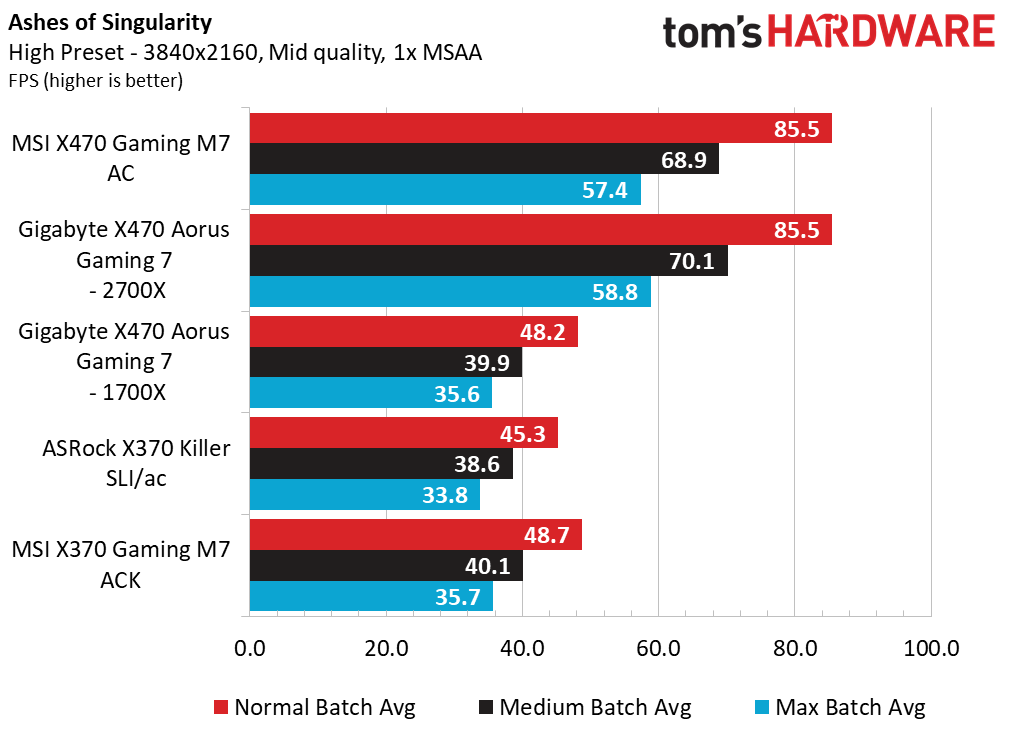
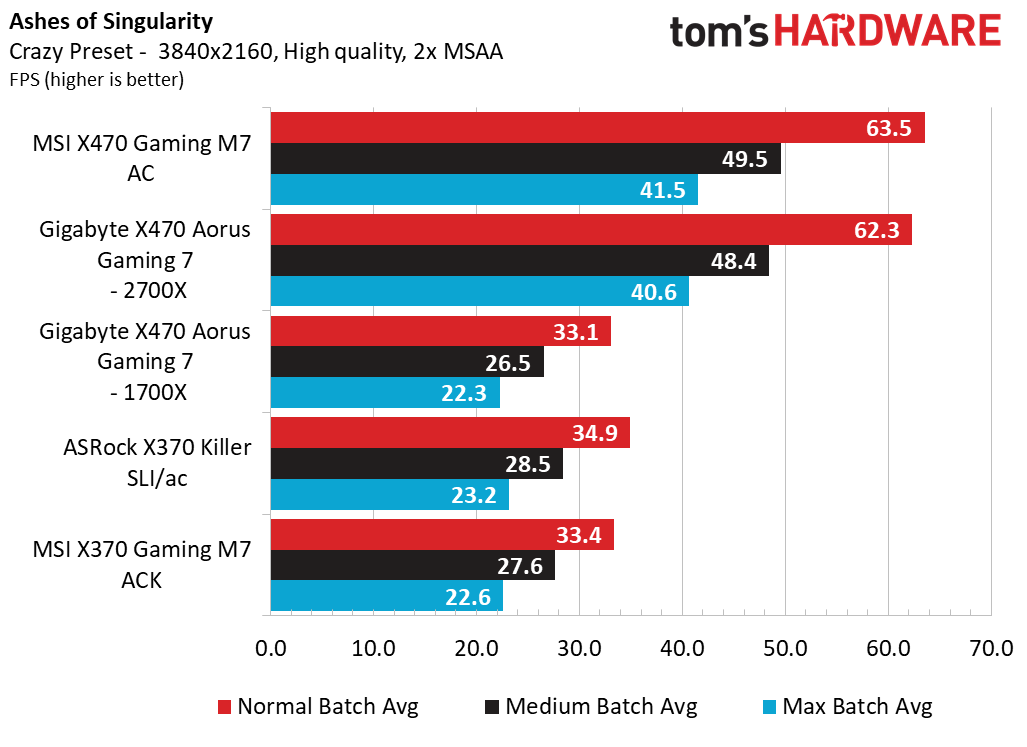
The singularity is upon us and Ashes shows solid wins for the Gigabyte X470 board across all test settings except for 4k and the Crazy preset. The MSI X470 Gaming M7 AC manages to beat out the competitor by two percentage points but this trend will continue to damper our excitement with the board. The X370 board, on the other hand, wins all categories on average except for 4k and Crazy presets, where the ASRock board comes ahead.
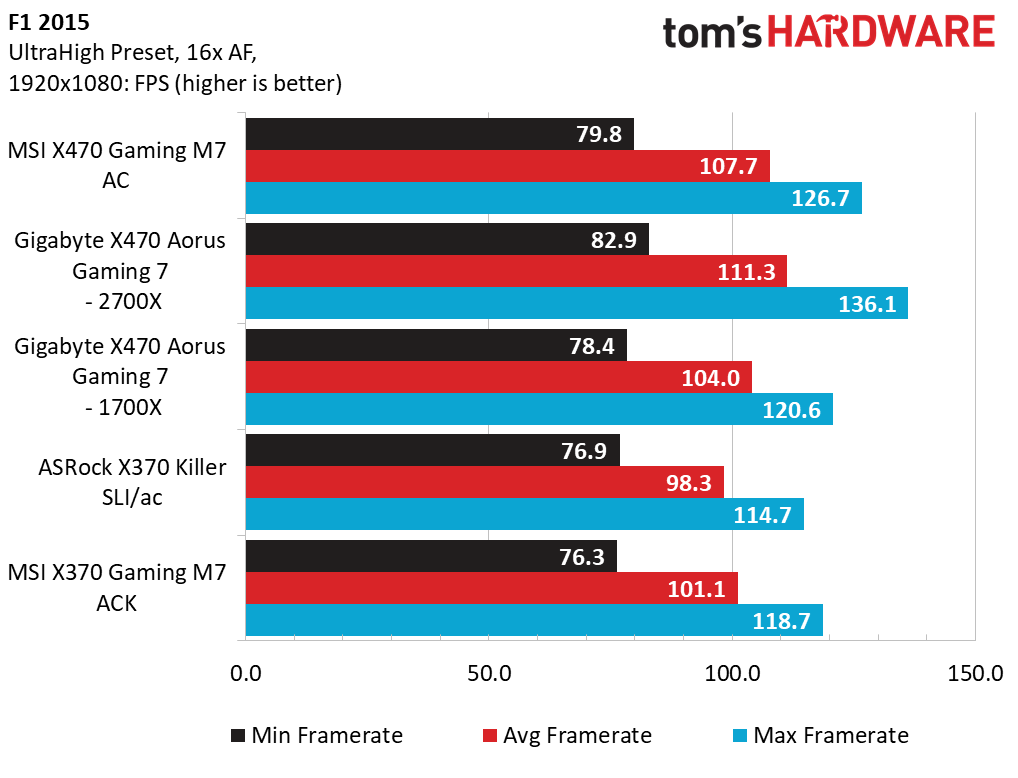
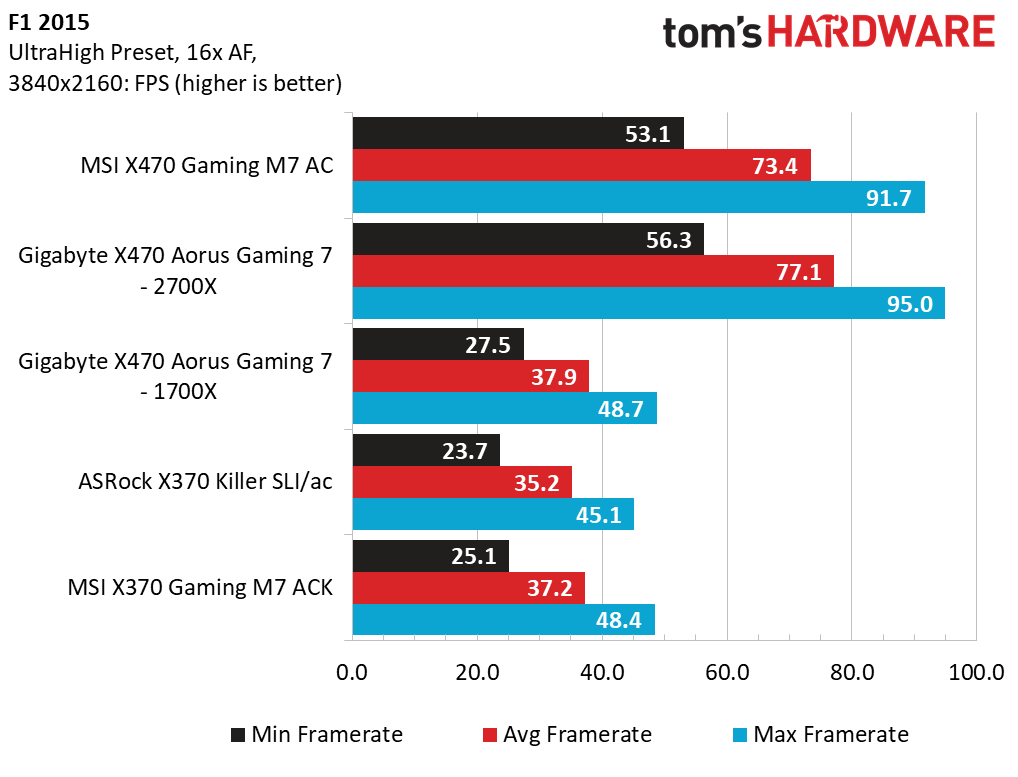
F1 2015 starts to show its reliance on CPU power a bit here, where the GTX 1080 is only able to add an additional 10 to 20 frames per second at 1080p but 4k clearly requires the strength of Pascal at the wheel for smooth framerates at the UltraHigh preset. Digging into the data, the MSI X470 Gaming M7 AC continues to lag by a couple frames here and there resulting in average-itus bringing its average scores down in turn. The MSI X370 Gaming M7 ACK opts to tone down its enthusiasm by placing in 2nd place in our 1700X/970 data sets.
Get Tom's Hardware's best news and in-depth reviews, straight to your inbox.
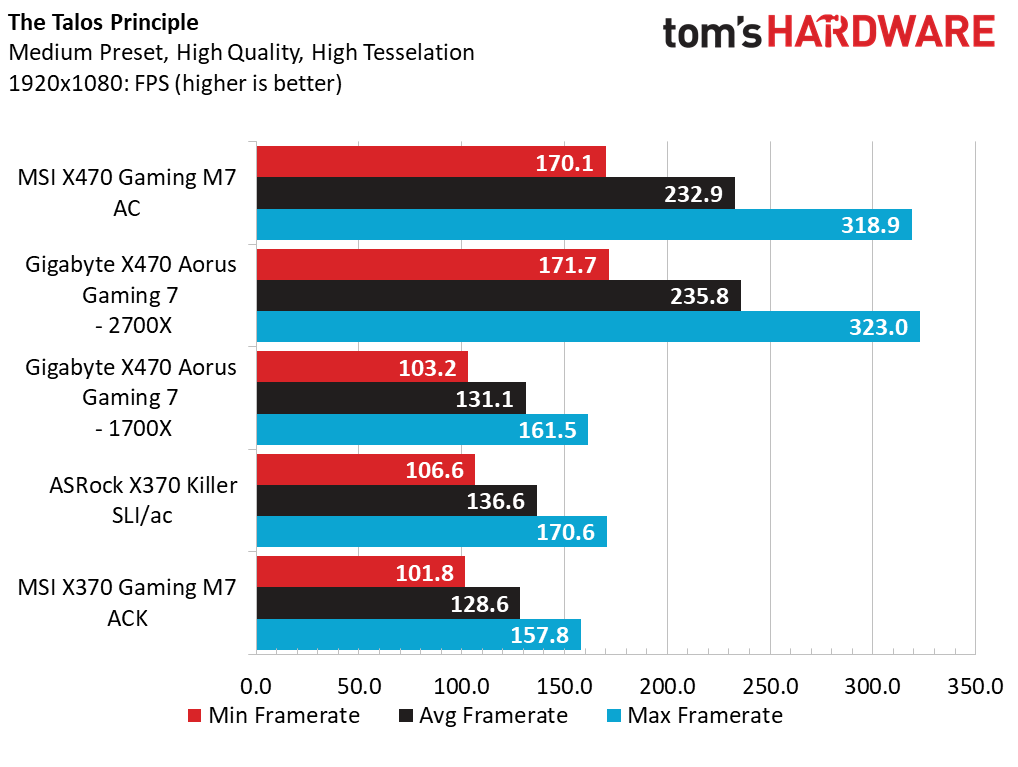
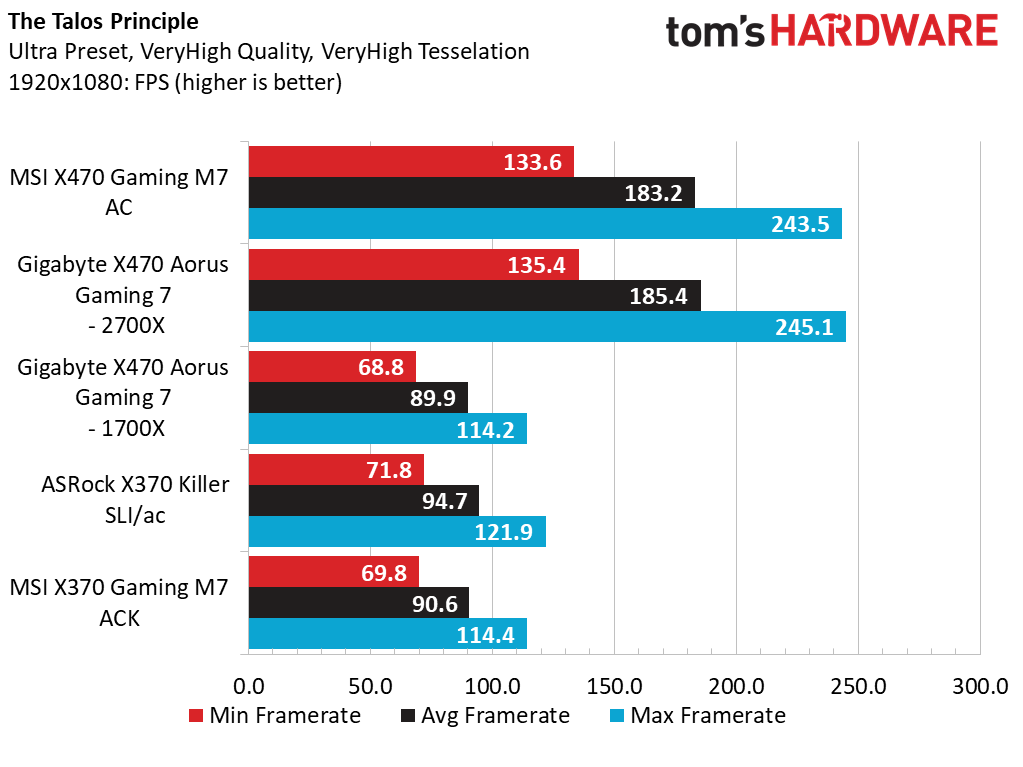
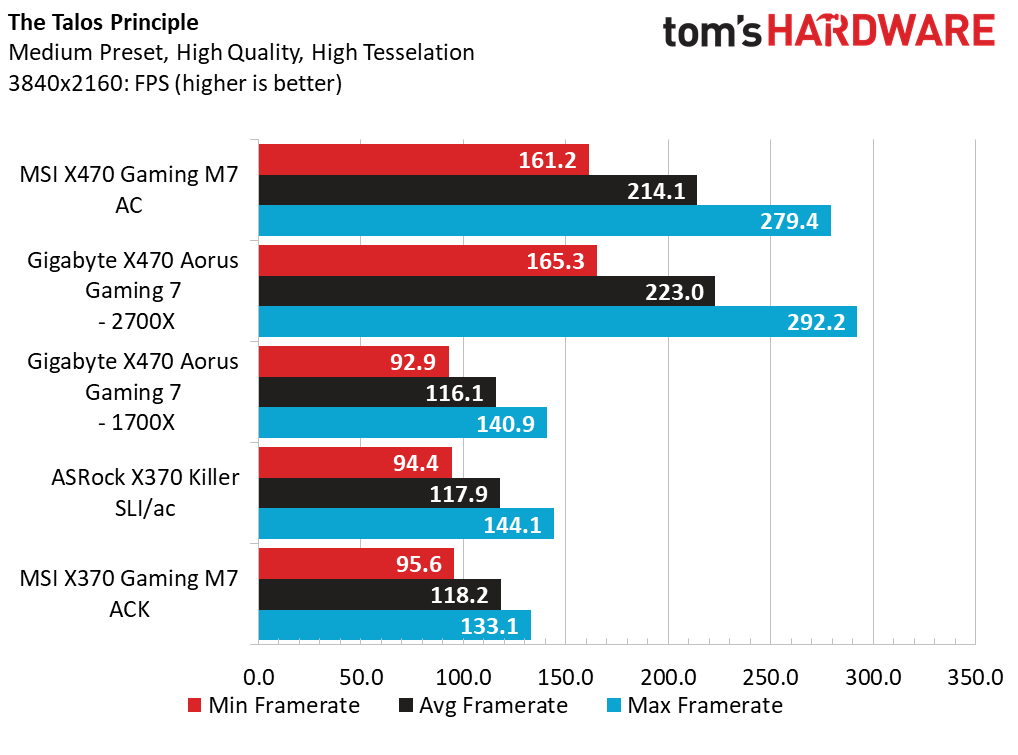
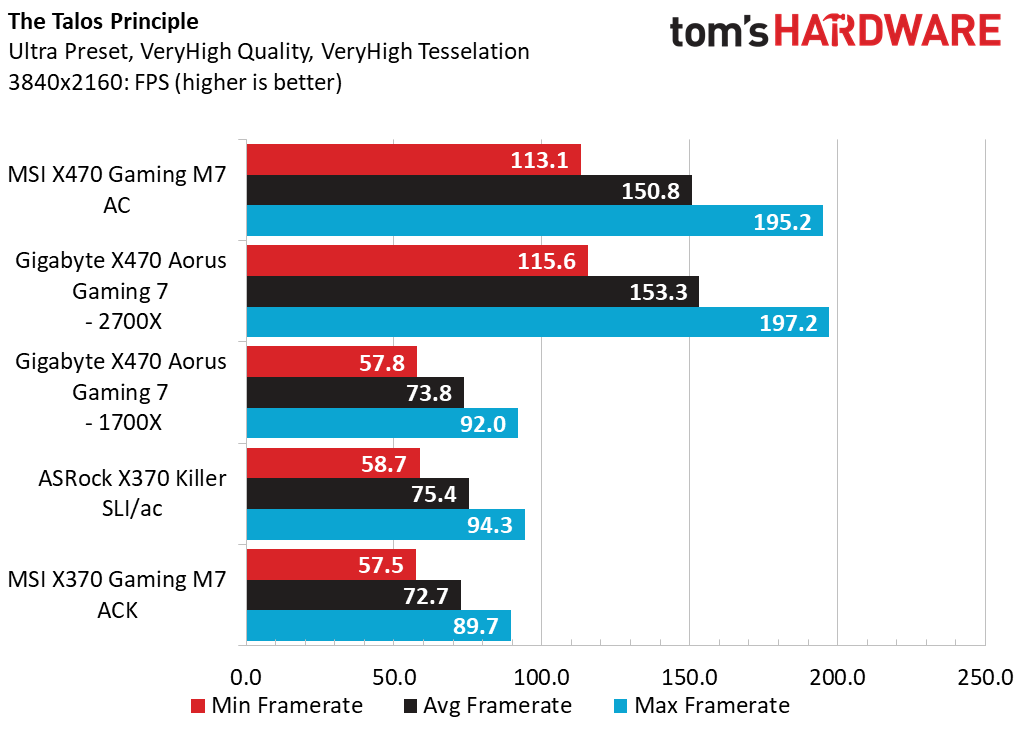
Not to confuse machine learning with Gaming, The Talos Principle runs well on all platforms at all resolution and detail levels. The MSI X470 Gaming M7 AC does continue to fall behind in frame rates upwards of 3% at 4k and Medium detail levels but for the most part, hangs on against the competition. A similar story is told with the X370 Gaming M7 ACK which falls behind on all quality settings but is still within the margin of error.




Lastly, Metro Last Light: Redux rounds out our Gaming benchmarks with interesting results. As we noted in the X470 launch article, the 1700X Gigabyte X470 data still perplexes us to this day and the inclusion of the 2700X data only adds salt to that wound. Regardless, the MSI X470 Gaming Gaming M7 slips up compared to the Gigabyte 2700X combo by only 2.6% at 1080p and High presets while all samples fall into line as we increase the details and resolutions. Overall, we still see the Gaming M7 AC slip by a few frames resulting in lower than desired averages.
Aggregating the data, we see the culmination of the trends play out. On average, the MSI X470 Gaming M7 AC lags the Gigabyte X470 Aorus Gaming 7 by 2.4% across the board which isn’t bad considering the specific margins of the tests. On the other hand, the MSI X370 Gaming M7 ACK leads the 1700X pack by all aspects except for synthetics which is still a very tight race. All things considered, the performance of both Gaming M7 boards is on par with expectations and shouldn’t play too much of a factor in the value segment.
MORE: Best Motherboards
MORE: How To Choose A Motherboard
MORE: All Motherboard Content
Current page: Test Results: Synthetics, Games & Performance
Prev Page UEFI & Test Configuration Next Page Overclocking, Power & Efficiency